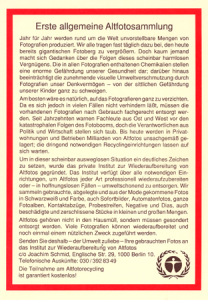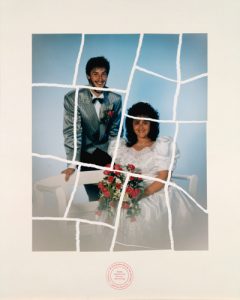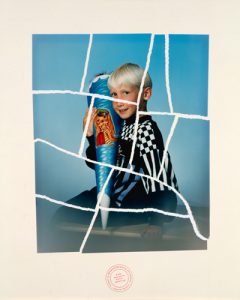
First General Collection of Used Photographs
Year in and year out an unimaginable number of photographs are produced worldwide. Virtually every day each of us enlarges this gigantic mountain of photographs, without giving the consequences a second thought. But while photography seems a harmless leisure pursuit, the chemicals contained in all photographs pose enormous dangers to our health. What‘s more, photographs in such quantities increase visual pollution and undermine our thinking power—to say nothing of the moral dangers they pose for our children.
In these conditions it would be best if we stopped making photographs altogether—but in many cases this is hardly possible. Therefore, it is essential to professionally dispose of all photographs once they are no longer needed. Experts from East and West have warned us for decades about the impending, catastrophic consequences of the photo boom, but their pleas have fallen on deaf ears among those responsible in industry and politics. Today billions of used photographs are stored improperly in homes and businesses, waiting for desparately needed recycling facilities.
The Institute for the Reprocessing of Used Photographs, privately founded in 1990, offers a clear path out of this seemingly inescapable situation. The Institute maintains all facilities necessary to professionally reprocess photos of all kinds—or, in hopeless cases, dispose of them ecologically. We collect used, abandoned and unfashionable photographs in black and white or color, including instant photographs, photobooth strips, entire photo albums, contact sheets, test strips, negatives and slides, as well as damaged and shredded items, in both small and large quantities.
Remember, used photographs do not belong in the household garbage—they need special disposal. Many photographs can serve a new and useful purpose after reprocessing. For the sake of our environment, send your used photographs to the Institute for the Reprocessing of Used Photographs.
Participation in this recycling program is guaranteed free of charge!


^
Torn-up studio portraits mounted on archival board, 50 x 40 cm each
